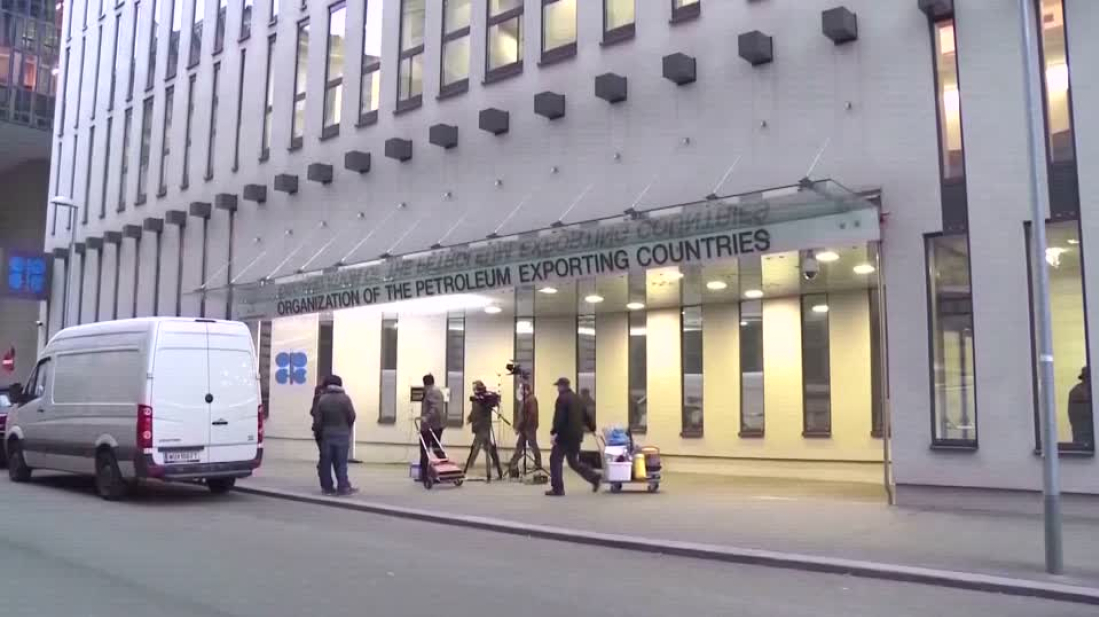Iran conflict widens to Lebanon, Kuwait mistakenly downs U.S. jets
The U.S. and Israeli air war against Iran widened on Monday, with no end in sight as Israel atta...

OPEC+ will increase oil production by 547,000 barrels per day in September after eight members of the organisation held a brief virtual meeting on Sunday. They said the company will continue to accelerate its output hikes to regain market share.
The decision comes amid growing concerns about supply disruptions linked to Russia.
This move fully reverses the group’s largest previous output cuts and adds to a separate increase from the United Arab Emirates, together totaling about 2.5 million barrels per day, roughly 2.4% of global demand.
The decision comes during intensified U.S. efforts to pressure India into stopping Russian oil imports, part of Washington’s strategy to push Moscow toward peace talks over Ukraine, with President Donald Trump aiming for progress by 8 August.
OPEC+ cited strong economic conditions and low inventory levels as key reasons for boosting supply. Despite increased production, oil prices remain high, with Brent crude closing near $70 a barrel on Friday, up from a low of about $58 in April. Rising seasonal demand also supports prices.
Energy analyst Amrita Sen said strong prices and tight supplies have boosted OPEC+’s confidence in raising output. The group will meet again on 7 September to possibly revisit 1.65 million bpd in cuts set to last through 2026.
UBS’s Giovanni Staunovo highlighted that markets have absorbed the increased supply well, partly due to stockpiling in China.
"So far the market has been able to absorb very well those additional barrels also due to stockpiliing activity in China," said Giovanni Staunovo of UBS. "All eyes will now shift on the Trump decision on Russia this Friday."
In addition to the voluntary 1.65 million bpd cut by the eight members, OPEC+ maintains a 2 million bpd cut across all members, which expires at the end of 2026.
Former OPEC official Jorge Leon praised the coalition for fully reversing its largest cut without causing price crashes but cautioned that managing the remaining cuts.
"But the next task will be even harder; deciding if and when to unwind the remaining 1.66 million barrels, all while navigating geopolitical tension and preserving cohesion."
Follow the latest developments and global reaction after the U.S. and Israel launched “major combat operations” in Iran, prompting retaliation from Tehran.
Saudi Arabia’s state oil giant Saudi Aramco closed its Ras Tanura refinery on Monday following an Iranian drone strike, an industry source told Reuters as Tehran retaliated across the Gulf after a U.S.-Israeli attack on Iranian targets over the weekend.
The Kremlin is utilising the recent United States and Israeli military strikes on Iran to validate its ongoing war in Ukraine. Russian officials are pointing to the escalation in the Middle East as evidence that Western nations do not adhere to international rules.
The Middle East crisis intensifies after the deadly attack on the compound of the Supreme Leader of Iran Ali Khamenei on Saturday that killed him, other family members and senior figures. Iran has launched retaliatory strikes on U.S. targets in the region.
Ayatollah Alireza Arafi has moved into a pivotal constitutional role following the death of Supreme Leader Ayatollah Ali Khamenei, becoming the clerical member of Iran’s temporary leadership council under Article 111 of the Constitution of the Islamic Republic of Iran.
The European Commission sees no immediate impact on the European Union's security of oil supply from the escalating conflict in the Middle East, it said in an email to EU governments, seen by Reuters on Monday (2 March).
Paramount Skydance emerged as the winner in a months-long battle to acquire Warner Bros Discovery after streaming giant Netflix on Thursday refused to raise its bid for the storied Hollywood studio.
Global debt surged to a record $348.3 trillion at the end of 2025, after nearly $29 trillion was added over the year, marking the fastest annual increase since the pandemic, according to the Institute of International Finance (IIF) report released on Wednesday.
Millions of Colombian roses have arrived in the United States just in time for Valentine’s Day, keeping the country on track as the world’s second-largest flower exporter. Between 15 January and 9 February, Colombia shipped roughly 65,000 tons of fresh-cut blooms.
Russia’s car market is continuing to receive tens of thousands of foreign-brand vehicles via China despite sanctions imposed after Moscow’s full-scale invasion of Ukraine in 2022, a journalistic investigation has found.
You can download the AnewZ application from Play Store and the App Store.

What is your opinion on this topic?
Leave the first comment